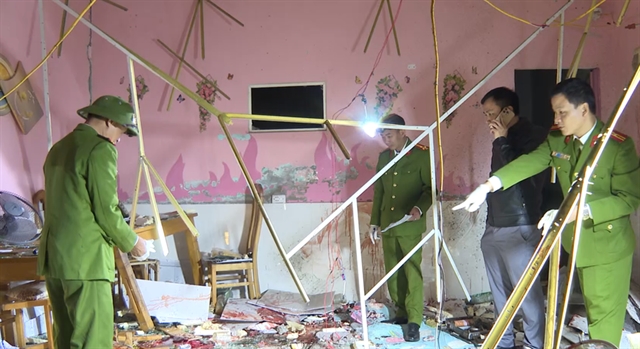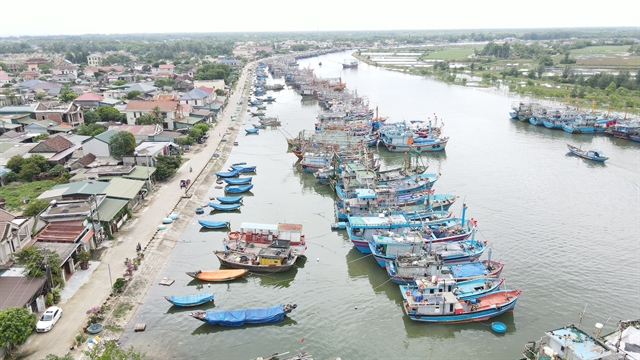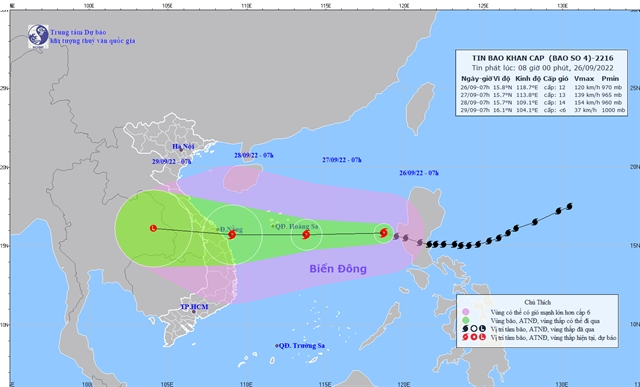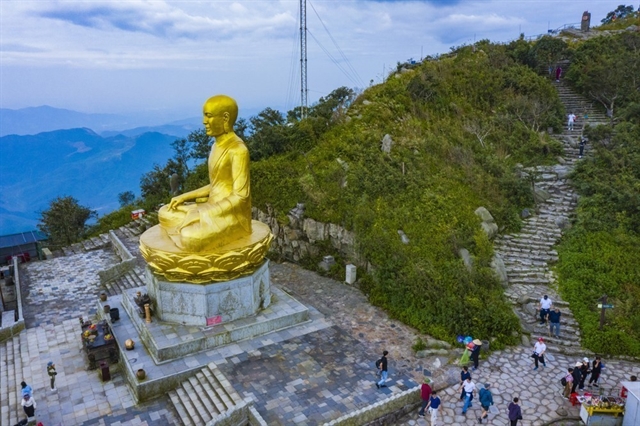 Society
Society

 |
| Boats docking at Nam Cửa Việt wharf, Quảng Trị Province. — VNA/VNS Photo |
HÀ NỘI — Super typhoon Noru, one of the strongest in the last 20 years, entered the East Sea early Monday morning and is expected to hit Việt Nam's central provinces on Wednesday morning.
Noru is the fourth storm to hit the East Sea this year.
At 4 am on Monday, the super typhoon was 810 km east of Việt Nam's Hoàng Sa (Paracel) Archipelago with winds at level 12-13 (118-149 km per hour) and gusts of level 14.
According to the National Centre for Hydro-Meteorological Forecasting, Noru will keep moving west-northwest at a speed of 20-25 km per hour.
By 4 am on Tuesday, the eye of the storm will be about 250 km from the Hoàng Sa Archipelago with level 13 (134-149 km per hour) winds and level 16 gusts.
 |
| Super typhoon Noru entered East Sea on early Monday morning and is moving westward, heading towards Việt Nam's central localities. Photo courtesy of the National Centre for Hydro-Meteorological Forecasting |
All ships, aquaculture areas and activities in the area are at high risk of being impacted by strong winds, high waves and flooding.
Due to storm impacts, from September 26, waters in the northern part of the East Sea will be extremely rough with 8-10m waves. In addition, torrential rains of 150-300mm are forecast in the central region and Central Highlands from September 27-28. As a result, level 3 and 4 national disaster risks have been issued to regional authorities.
Localities were asked to cancel unnecessary meetings to concentrate on storm prevention and control, ban vessels from the sea and let students stay home.
They must keep a close watch on the storm's developments and promptly implement directions from central agencies while guiding vessels to seek safe shelter and supporting farmers to protect their aquatic farms.
Along with ensuring safety for reservoirs and dams, it is crucial to evacuate people in areas with high risks of landslides, the PM stressed.
They were also reminded to maintain measures to prevent and control COVID-19, as well as dengue fever at the same time.
He warned that despite the nice weather right now, people should not let their guard down.
"Ministries, branches and localities, especially the heads of such units, must further enhance their responsibilities to ensure the safety, life and property of the people and the State in the context of the weather. Climate change is becoming increasingly extreme and unusual, causing very serious consequences," he said.
On Sunday night, Deputy Prime Minister Lê Văn Thành chaired a meeting to discuss measures to respond to the storm, during which he asked the National Steering Committee for Natural Disaster Prevention and Control, the National Committee for Natural Disaster Response and Search and Rescue, as well as ministries and sectors, to intermediately establish working groups to direct storm response activities.




